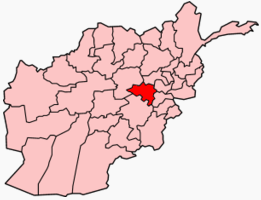| |||
President-elect calls Israel a "miserable regional country" after Netanyahu brands him a "wolf in sheep's clothing".
Last Modified: 17 Jul 2013 10:44
| |||

Hassan Rouhani will succeed Mahmoud Ahmadinejad as Iran's president on August 3 [AP]
| |||
| Hassan Rouhani, Iran's president-elect, has brushed off threats of military action by Israeli Prime Minister Binyamin Netanyahu over Tehran's nuclear programme. Referring to the US and Israel, Rouhani said: "When some say that all options are on the table and when a miserable regional country says such things, it makes you laugh." In an address to Iran-Iraq war veterans on Wednesday, in which he rebuked Netanyahu, Rouhani said: "Who are the Zionists to threaten us?" He also said that warnings of an Iranian retaliation had stopped Israel from carrying out its threats to launch strikes on the country. According to the semi-official Mehr news agency, the Iranian foreign ministry characterised Netanyahu’s remarks as Israel's’s interference in the internal affairs of other countries and its attempts to damage other countries' relations with Iran. Netanyahu on Sunday renewed his threat to take unilateral military action to halt Iran's nuclear programme. "They're edging up to the red line. They haven't crossed it yet," the Israeli premier told CBS News' "Face the Nation." "He's [Rouhani] criticising his predecessor for being a wolf in wolf's clothing. His strategy is be a wolf in sheep's clothing. Smile and build a bomb." Western nations believe Iran is seeking the means to make atomic bombs, and have demanded Tehran abandon its most sensitive nuclear work. But Iran denies the charge and says it needs atomic power for energy generation and medical research. The election of Rouhani, a relative moderate, on June 14 has raised some hopes for a resolution of the long-running dispute over Iran's nuclear intentions. Rowhani will succeed Mahmoud Ahmadinejad as president on August 3, but Iran's Supreme Leader Ayatollah Khamenei has the final say on nuclear policy.
Afghanistan....... Captured Translator Links US Forces to Afghan Civilian DeathsInsists Role in Torture Was 'On Orders' From Handlers
by Jason Ditz, July 16, 2013
Captured Afghan-American translator Zakeria Kandahari, who was shown in videos torturing Afghan civilians in US custody, has reportedly confirmed his involvement, insisting that his role was strictly “on orders” from US military handlers.
 The Kandahari video was part of Afghan investigation into disappearances and killings around a US special forces base in Wardak Province, which locals had been complaining about and which the Afghan government unsuccessfully tried to expel from the Nerkh District. The Kandahari video was part of Afghan investigation into disappearances and killings around a US special forces base in Wardak Province, which locals had been complaining about and which the Afghan government unsuccessfully tried to expel from the Nerkh District.
The victim of the torture video, which US officials confirmed as authentic but insisted they didn’t know anything about, was a civilian named Sayid Mohammad who was disappeared from a nearby village. His body was found in May, in a military body bag,in a ditch just 200 yards outside the US base.
Locals have reported repeated raids from the base, with US troops on ATVs dragging people off, usually never to be seen or heard from again, though with the occasional discovery of one of their bodies not too carefully disposed off on the outskirts of the base. Kandahari was captured last month by Afghan forces.
Syria War merging into Iraq instability as sectarian strifes continues to rage ?
UN Envoy: Iraq, Syrian Wars Are ‘Merging’Not Just Spillover Anymore, Officials Say
by Jason Ditz, July 16, 2013
For quite some time, we’ve been talking about spillover violence in Iraq, with Syria’s Civil War playing a big role in the escalation of violence in western Iraq, even as Iraqi militant groups cross into Syria to bolster the war there.
 But UN officials say that increasingly the term “spillover” doesn’t make sense, and that the two wars are simply merging into one war, covering two countries (and sometimes three with fighting in Lebanon). But UN officials say that increasingly the term “spillover” doesn’t make sense, and that the two wars are simply merging into one war, covering two countries (and sometimes three with fighting in Lebanon).
UN envoy to Iraq Martin Kobler says that Iraq, as the “fault line between the Shia and the Sunni world,” will be impacted most by the Syrian war, and that fighters fromboth sides have gone to Syriato fight one another there.
That’s been true for awhile, and Syria’s conflict has increasingly regional implications, but Iraq had a borderline sectarian civil war going as it was, and the “merger” will make the war even harder to settle as more countries find themselves part of it.
| |||
Commentary on the economic , geopolitical and simply fascinating things going on. Served occasionally with a side of snark.
Wednesday, July 17, 2013
War watch July 17 , 2013 - Iran , Syria , Iraq and Afghanistan in focus....
Subscribe to:
Post Comments (Atom)




No comments:
Post a Comment